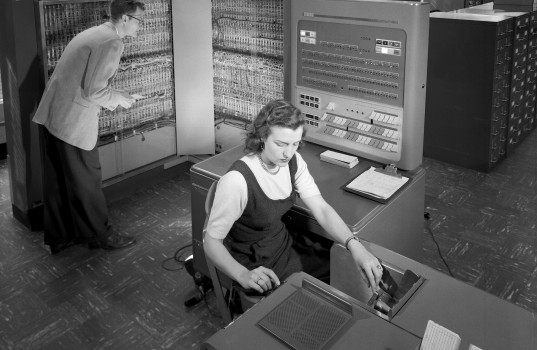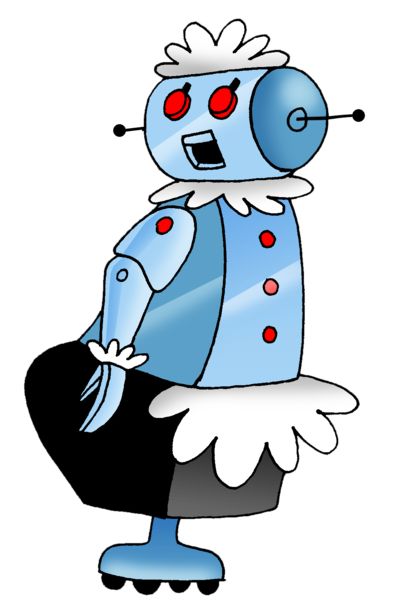Better Living Through Artificial Intelligence: Applications That Can’t Come Too Soon
You probably heard last May about the owner of a self-driving car who was killed because he failed to keep his own eyes on the road. More amusingly, you may have read recently about the six-year-old girl who innocently asked Alexa to deliver a dollhouse, or the toddler who asked for a song and got offered porn instead. Here we are worrying that Artificial Intelligence will steal our jobs (see last week’s post), but for chauffeurs, personal shoppers and DJs at least, AI clearly has some ways to go.
That’s not stopping the technology from showing up in a lot of consumer products. Granted, my clever little Roomba still bears scant resemblance to Rosie the Robot, but we’re going to see AI showing up more and more. I don’t think we’re about to roll over the singularity and the robots will take over the world. After all, even Dr. Kurzweil doesn’t think that will happen for another 30 years. But I do think that until 2045 there are a lot of ways life could be better with silicon servants.
In fact, once I accepted that our new robot overlords won’t be all bad I discovered there are quite a few areas of my life in which I’d be happy to cede control to an artificial intelligence:
- Small talk. Every week I waste precious time telling my co-workers about my weekend, general health and vacation plans and endure a recitation of the quotidian successes of their children and the progress of local sports teams. No one needs this information, cares about it or is even listening. An AI that knows a little about my family, favorite teams and current weather could cover all of these conversations for me. I’m not sure how this can be implemented in the coffee room, but since many of my project teams are dispersed a lot of these interactions take place on the phone or in chat clients.
- Navigating customer service. One usually calls an 800 number with a very well-defined and bounded question or task. “Why is my bill so much higher this month?” “When will the technician arrive?” “Cancel my service.” Sometimes the automated system makes it easier; sometimes it is designed to discourage. What these interactions have in common is the provision of some basic information in a time-consuming and tedious process. Why not fight fire with fire and send in your own AI? One that knows your account numbers, address and mother’s maiden name could get a lot of work done on your behalf. I’m happy to do my own shopping and DJ-ing, that’s actually fun, but how about “Alexa, ring the bank and renew my mortgage, then tell DirecTV we’ve lost our signal again.”
- Submitting job applications. I know a number of people currently engaged in a job hunt. The mind-numbing tedium of the online job application submission process is exacerbated by its near total futility. There are already AIs that compose simple articles about sports and the markets. Imagine an AI that could read the job post, tailor one’s resume to include appropriate keywords and compose a tailored cover letter. Then it could handle the submission process through the tedious and fiddly web forms these sites employ (I’m convinced that it is impossible to actually complete a job application on Goldman Sachs’ careers web site; if they don’t already know about you, they don’t want to hear from you.) That would cut down on the ponderous, demoralizing work of submitting a job application, allow someone to submit many more applications of a higher quality, and increase one’s chances of landing a job through an internet submission from that of a snowball’s in hell to just wildly unlikely.
- Getting out of the echo chamber. Everyone thinks they have a broad view of the world and everyone is wrong. This phenomenon goes by names like the echo chamber, the filter bubble and confirmation bias. Web sites, including Google, are trying to predict your interests, and that means that what you see are not diverse points of view but what you already agree with. So nobody learns or grows, unless they learn sarcasm or grow self-righteous. An AI that was privy to the articles that surface on my tablet could compose, from respectable sources, a contrasting feed that presents cogent counter arguments to the news I’ve read recently. If Facebook is already feeding me what I want to see, how hard can it be to show me the opposite?
That last one may be harder than it looks. Intentionally or not, I provide streaming services with a lot of data about my preferences and predilections yet Netflix concludes “Because you watched No Country for Old Men…” I might like to watch the BBC’s Planet Earth, Californication, or Udta Punjab (some kind of Bollywood Law and Order knock off, as far as I could tell). This might be the most important application in the list, but if Netflix is any indication, intelligence is at its most artificial when parsing media.
I’m pretty sure there’s a startup business or two in this list, but then I have clever business ideas all the time. The way I know they’re clever is that I Google them to find out if anyone has got there first. I generally find, 99 times out of a hundred, that not only is the idea already roaming the wild, there are a dozen business models with hundreds of competing startups each and probably an industrial journal or two. While I’m not going to promise that these suggestions are new and original (or even that they’re not offered a little bit tongue in cheek), I do hope they’re at least intriguing and I offer them without reservation of rights.
« Artificial Intelligence: I Have My Robots Worry for Me (Part 2) Zero-Rate Plans Rain on Net Neutrality »












